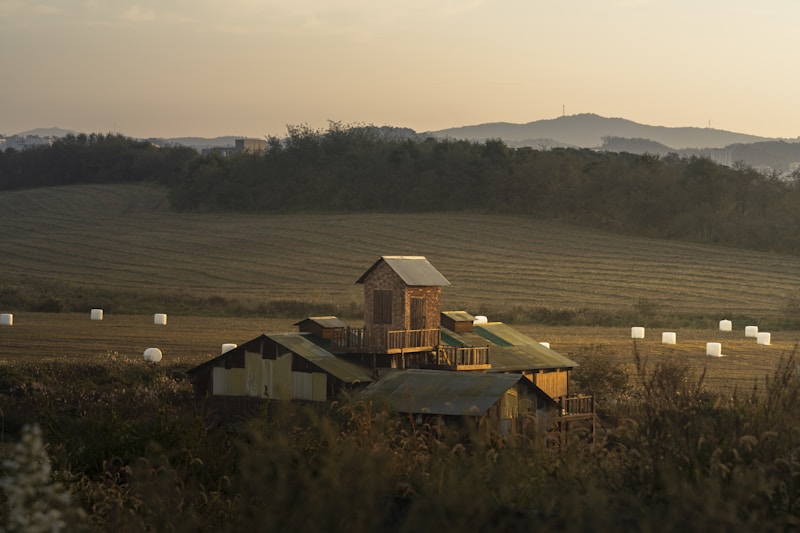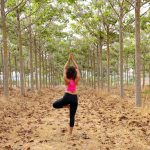Jess Leitch is passionate about mental health and about using yoga to improve emotional intelligence and resilience. Her background, both personal and professional, means that she brings a lived experience to her yoga teaching, as well as a professional understanding. She’s the founder of Shake Your Buddhi and encourages her students to get intimate with themselves in order to connect to their own inner power and magic. She’s also teaching the Yoga for Anxiety, Depression and PTSD right here at YogaLondon.
1. What’s your most memorable yoga moment?
My most memorable yoga moment was playing with full arm balance during partner work with Corrie (McCallum) last year. Her knowledge meant that I didn’t get stuck in my ideas about what I could and couldn’t do. I felt strong and powerful. It was a great feeling knowing I could do it.
2. You describe your yoga style as post-lineage – is that a rejection of traditional yoga methodologies?
It’s not a rejection at all. I have a deep respect for the history of yoga, the teachings of the Upanishads, and Tantric teaching, but I don’t prescribe to one particular lineage or teacher.
We stand on the shoulders of giants, but I am all about moving into the inner system, beyond some else’s thinking mind.
3. Where did the inspiration for your business name ‘Shake your Buddhi’ come from?
Years ago, before doing my first yoga teacher training, I spent some time learning about the 24 Tattvas of creation, one of which is the Buddhi – the seat of wisdom and intelligence.
I liked the idea of the name of my business having two meanings. There’s the shaking off element of the name – learning when to let go is part of the journey to ourselves.
Then there’s the fun side of shaking your ‘buddhi’ – learning to lean into what’s helpful, shining your power, your magic.
4. You’re an Ozzie living in the UK – how does travel and being an outsider inform your yoga?
Travel has bred both empathy and understanding of how people have different ways of living, being and seeing things to me. My family is from a very poor background in Australia and none of them have travelled or gone onto secondary education, and consequently, have a very narrow perspective on life. Travel and immersion in other cultures literally and figuratively expand our horizons.
5. How has lockdown/Covid-19 changed your practice?
I’ve actually started running. My husband – who’s an ultra-marathon runner – challenged me to take up running, and I set him a yoga challenge. In addition, I’m training in TRE (Trauma Release Exercises), so my asana practice has taken a bit of a back seat over lockdown. I’ve also rested a lot. I’ve felt really good for it.
6. You’re teaching the Yoga for Anxiety, Depression and PTSD here at YogaLondon – what key knowledge do you want students to learn?
The main thing I’d like them to take away is that emotional resilience in an ongoing practice, just like our asana and breathing practice. It’s a daily dedication, because life will throw challenges at us, and we can’t just learn something from a book and say, ‘Ok, great – got it’. It’s not a pill you can pop and make it all better.
It’s also a process of self-awareness, followed by self-understanding, followed by self-acceptance, which then goes round and round and repeats. It’s a commitment to lifelong learning, which is both liberating and overwhelming.
7. The recent B&W photo challenge on Instagram highlighted how important female support is – how important is your female tribe in your life?
It was interesting to me where the black and white challenge originated from, and as a survivor of domestic and sexual abuse, the challenge meant a lot to me. My female tribe and my mentors have always been a huge support.
My Mum, who passed away seven years ago now, was a fierce lioness, and that fierceness is in me. The teachers that I’m intuitively attracted to are those that share that same passion. The women in our lives hold us up, show us what’s possible, give us the strength and fire we need to make changes.
8. How has your own experience of trauma shaped your yoga teaching?
I am a trauma survivor, and I like to talk about Post-Traumatic Growth, on many levels. My background is in Community Mental Health and that has also influenced my approach to how I teach yoga. It has also given me an awareness of the power of words and respect for the power dynamic of the teacher-student relationship. This needs to be used for good and not to destroy.
It’s also taught me about presenting choice. Often in traumatic situations, the element of choice is taken away from you. Teaching yoga I make sure I’m giving choice – giving people a sense of agency. Yoga gives people the ability to feel what they need to feel and to be able to discern for themselves what’s helpful and unhelpful in their process of recovery.
9. How important is it to practice what you preach? And how easy is it?
As teachers we need to be honest about our humanness – our flaws and fallibility – and that we can’t always practice what we preach. All my favourite inspirational people, not just in the yoga world, but generally – people like Russell Brand and Brené Brown – are very open about the fact that they’re not perfect, and that they don’t always get it right.
I’ve always made fun of myself, and have a sense of compassion for myself and others. Let’s be honest, it’s easier to tell other people what to do. Just today, I was beating myself up for not finding the time to fit in a practice. But then I just thought – you know what, it might not happen today, and that’s ok.
10. What do you most fear?
I think I most fear things NOT changing. Social justice is a big thing for me, and I think the thing I most fear at the moment is Trump being re-elected and all that that would signify for the world. I honestly don’t think I could hold out hope for the human race if that happens.
11. What advice would you give when teaching someone with anxiety?
I would say, first and foremost, teach the person in front of you. Keep their anxiety in mind, but teach the person – the fear and panic around anxiety can exacerbate the condition. Don’t take on all the responsibility to fix or change what’s going on. Encourage your student to accept the anxiety, be in it, stick with it.
12. What do you most love about being a YT?
I love the process of supporting people to become intimate with themselves. It’s great seeing people make breakthroughs in the teacher training sessions. Gradually you witness their bodily awareness and emotional awareness and intelligence develop… I think sometimes I get more out of it than they do! It’s a pretty cool job and I’m super grateful to be able to do this.
View details for the Yoga for Anxiety, Depression and PTSD – and other specialist courses.












